Ford GT40 classic cars for sale
The Ford GT40, built for one purpose—to conquer endurance racing and challenge Ferrari at Le Mans—remains one of the most technical and visually distinctive race cars of the 1960s. Developed by international teams with finely-calibrated V8 engines, the GT40's unmistakable design, low-profile stance, and racing successes have solidified its place as a motorsport milestone.
Search results
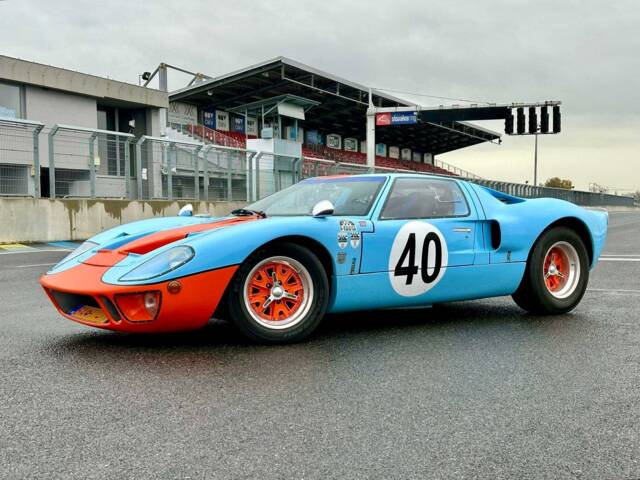
1965 | Ford GT40
Replica by KVA
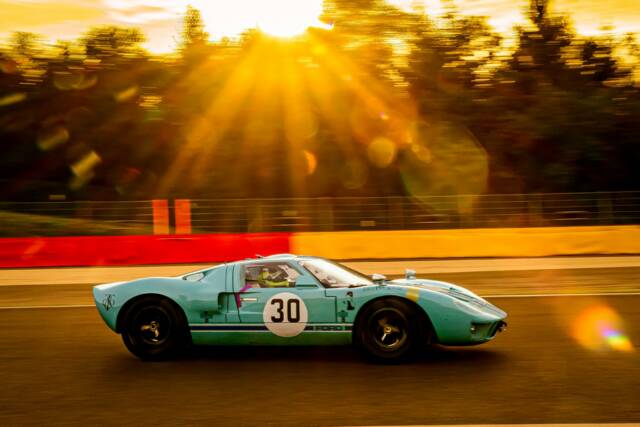
1965 | Ford GT40
"Si vous aspirez à gagner les Spa Six Hours !
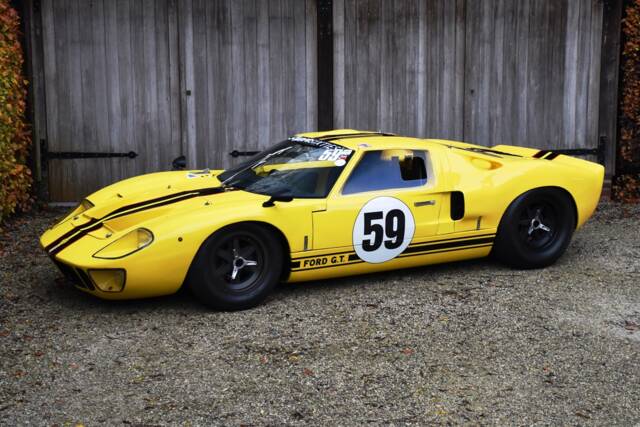
1965 | Ford GT40
FIA HTP valid until 31.12.2033. Ready to race.


1991 | Ford GT40
MARK I GT40 Recitation
Ford GT40 listing references from Classic Trader
Below you will find listings related to your search that are no longer available on Classic Trader. Use this information to gain insight into availability, value trends, and current pricing for a "Ford GT40" to make a more informed purchasing decision.

1965 | Ford GT40
Ford GT40 (by Gelscoe)
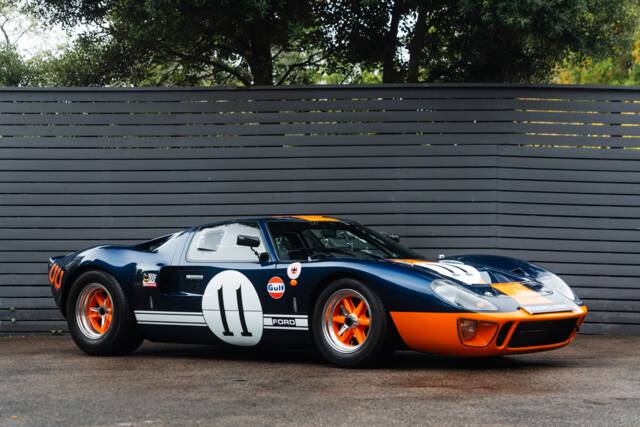
1966 | Ford GT40
SUPERFORMANCE GT40 MK ONE
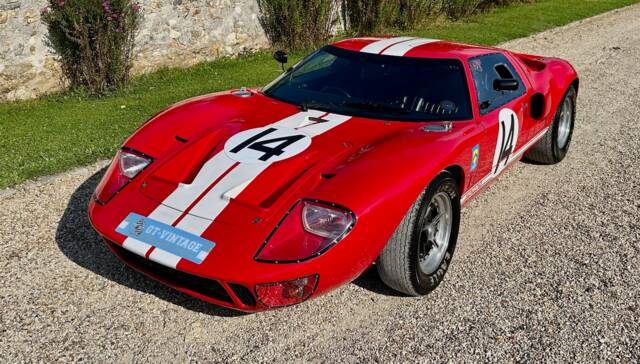
1965 | Ford GT40
FORD GT 40 MK1 REPLICA DRB 1980

2017 | Ford GT40
2017 Ford GT40 Evocation by Southern GT

1966 | Ford GT40
Tribute , deutsche Zulassung, H-Kennzeichen

1978 | Ford GT40
<p>PRESENTE PAD. 26 - FIERA BOLOGNA - 24-27 OTTOBRE</p>

1967 | Ford GT40
1967 Ford GT40

1965 | Ford GT40
2017 Goodwood Revival Whitsun Trophy Winner!
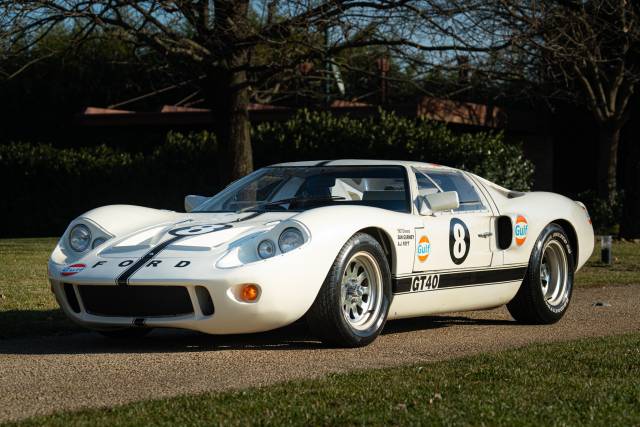
1978 | Ford GT40
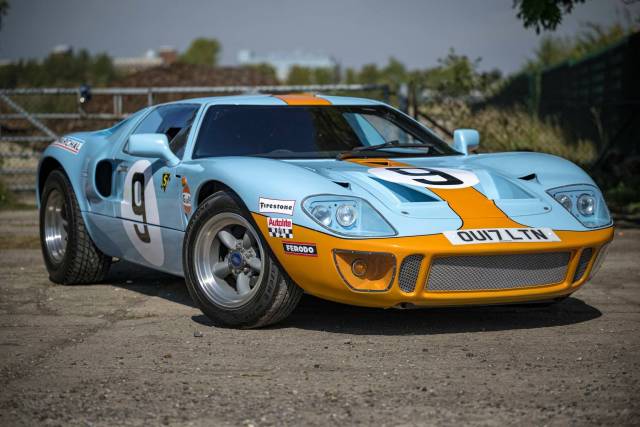
2017 | Ford GT40
Owner-Built & Engineered - Very Useable - Crackin' Looking!
Ford GT40 Classic Cars: Prices & Market Values
History and Introduction of the Ford GT40
The Ford GT40 emerged from a unique period in the 1960s when Ford set out to prove its engineering might in European endurance racing. After a failed attempt to acquire Ferrari, Henry Ford II initiated the GT40 project as a direct response. The objective: win Le Mans and topple Ferrari's dominance. The GT40’s name comes from its low, 40-inch overall height, a result of aerodynamic demands. Its structural strength relied on a robust steel frame and lightweight aluminium components. Introduced in 1964 and making its mark from 1965, the GT40 quickly became a symbol of American performance in European motorsport, capturing the attention of racing purists and enthusiasts alike.
Model History of the GT40
Ford created a total of 134 GT40s, including twelve prototypes and ten Mk IVs. The lineage started with the MkI—primarily intended for the racetrack but quickly adapted for limited road use. Seven MkI and MkIII models received conversions for street legality, each with subtle adaptations like additional comfort features. The GT40’s production concluded in 1968, with a true road car successor not arriving until 2002 in the form of the modern Ford GT. After production ended, the GT40 remained highly visible through historic racing, and passion for the model has led to the proliferation of sanctioned continuation models and high-spec replicas today.
Highlights of the Ford GT40
The GT40 is defined by its uncompromising focus: mid-mounted V8 engines in capacities ranging from 4.7 to 7.0 litres; monocoque or tube frame chassis; and pure racing features like the 'Bundle-of-Snakes' exhaust and centre-lock race wheels. With four consecutive Le Mans wins (1966–1969), it is the only American car to achieve this feat. Notable visual signatures include the famous Gulf blue/orange livery and ultra-low silhouette. The GT40 also featured sophisticated, independent suspension geometry shared with its Le Mans campaigns, a layout that remains relevant in racing circles today.
Technical Data
Special Editions and Collectible Models
Several versions of the GT40 command attention for collectors: the MkI street cars (31 units), featuring only minimal modifications from the racers for road use; the MkII and MkIV, both made in small numbers to comply with changing racing regulations and engine specifications; and the rare MkIII, engineered for greater road comfort but produced in just seven examples. Today, officially licensed continuation GT40s from Superformance and other builders are constructed with original-type chassis numbers and are eligible for historic competition—a distinctive feature that sets them apart from typical replicas.
Engine and Performance, Transmission and Handling
The GT40 set standards in its era for outright performance: advanced suspension and chassis tuning, mid-mounted V8s outputting up to 485 hp in the 7.0-litre MkII, and ZF or custom racing gearboxes allowed the car to reach up to 320 km/h at Le Mans. The driving experience is raw and direct, with racing-calibrated brakes and handling that reflect its competition lineage—drivers experience an extremely low seating position, quick steering geometry, and high feedback at all speeds. Modern replicas and continuation cars can be specced for both comfort and track-day focus, often blending contemporary reliability with period-correct feel. - GT40 MkI with 4.7-litre V8—favoured for closer connection to the original Le Mans setups
- GT40 MkII with 7.0-litre V8—sought by enthusiasts for its outright speed and competition history
- Superformance Continuation GT40s—officially licensed, historic-race eligible and constructed to original blueprints
Interior, Comfort, Exterior and Design
The Ford GT40 originated as a dedicated endurance race car, its exterior dominated by a streamlined, low body, wide fenders, and large vent cutouts. Interiors are spartan and tailored for the driving task: race seats in bucket-shell designs, authentically laid-out dashboards, and compact pedal boxes reflecting space constraints. Special period-correct features include Borrani or magnesium wheels, twin fuel fillers integrated into the sills, and the iconic 'nostril' front vents. Many road-spec GT40s and modern interpretations incorporate enhancements for cabin ventilation, deeper footwells, and even optional air conditioning to address original ergonomic limitations. Colours like Gulf blue/orange and limited factory shades further increase their appeal among collectors.
Other features and details
GT40s are regularly seen at historic race events and concours. Road-legal versions, although rare, bring the racing experience to everyday driving—limited only by practical considerations like cabin space, ingress, or visibility. The parts ecosystem is sustained by specialist suppliers, offering everything from bodywork to drivetrains, ensuring long-term support for owners and restorers.
Summary
The Ford GT40’s genesis as Ford’s answer to dominate Le Mans resulted in a mid-engined, low-slung machine recognised the world over for its technical credentials, design purity, and race record. Today, its appeal spans original road or race models, authentic continuations, and faithful replicas—supported by a vibrant network of specialists and a market reflective of its unique standing in motorsport history.




